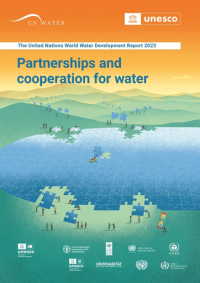Health

BOOK CHAPTER 6: Water, sanitation and hygiene (WASH) is crucial for human health and well-being. Global data show that on average, progress needs to be four times faster to meet the promise on safely managed WASH for all by 2030 (WHO/UNICEF, 2020a; 2021a; WHO/UNICEF/World Bank, 2022). WASH and health partnerships are needed to accelerate progress on WASH, and in turn accelerate progress on WASH-related health goals. While there is interdependence between the WASH and health sectors, there are also gaps in coordination and governance stemming from the fact that these sectors are led by different ministries, local authorities, international organizations, non-governmental organizations (NGOs) and private sector
actors at all levels. Both areas comprise different disciplines, practitioners, funding streams and institutional arrangements. Therefore, partnerships between WASH and health stakeholders, particularly those that work at the key intersection points as elaborated below, are necessary to optimize and accelerate positive health outcomes, especially among the most vulnerable. As shown in Table 6.1, in 2019, 1.4 million deaths and 74 million disability-adjusted life years (DALYs) were attributable to inadequate WASH globally. Historically, many health programmes have focused on curative strategies for disease control, such as medication and surgery. However, sustained and cost-effective disease control has proved difficult or impossible without addressing the root causes of disease transmission by preventing, rather that treating, diseases though better WASH services. Partnerships among WASH actors for health outcomes, and between WASH and health programmes, have proven to be an important tool to drive and hold WASH-related diseases down.
